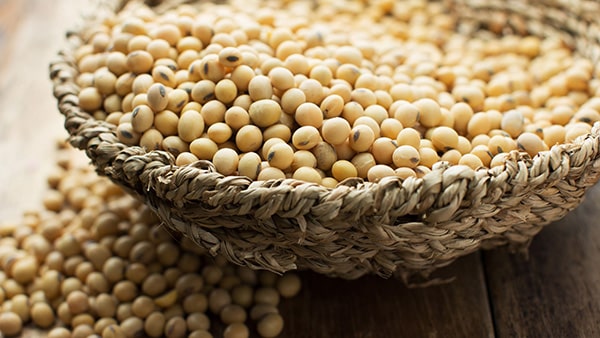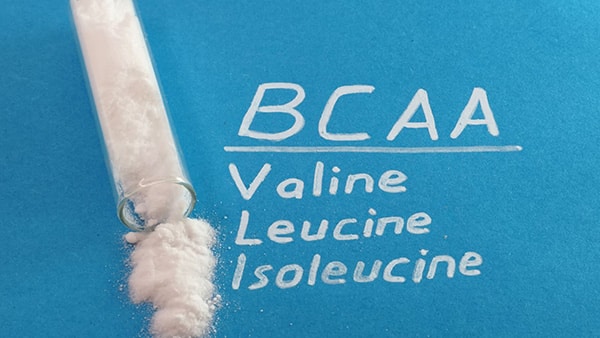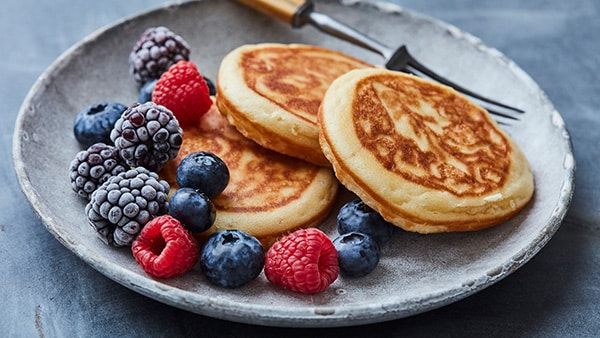En tant que pratiquant de musculation, vous savez que la croissance musculaire et la récupération reposent en grande partie sur vos apports nutritionnels en protéines. Les protéines en poudre classiques, fabriquées à partir de lait de vache ou de petit-lait (lactosérum), sont ainsi un excellent moyen de compléter les apports fournis par la nourriture solide.
Il existe toutefois une alternative pour les athlètes intolérants au lactose ou dont le régime alimentaire exclut les ingrédients d’origine animale : la whey vegan. Mais ce complément alimentaire est-il aussi efficace qu’une whey traditionnelle pour la prise de muscle ? C’est ce que je vous propose de découvrir dans cet article.
La whey vegan, en bref :
- La whey vegan est une alternative aux protéines animales.
- Elle est idéale pour les intolérants au lactose et les vegans.
- Contrairement à la whey traditionnelle, elle est fabriquée à partir de sources végétales comme le pois, le riz ou le soja.
- Les protéines végétales sont souvent incomplètes en acides aminés, sauf la protéine de soja.
- Un mélange de protéines végétales, comme pois et riz, permet d’obtenir un profil d’acides aminés plus complet.
Sommaire
Qu’est-ce que la whey vegan ?
La whey vegan regroupe les compléments alimentaires conçus exclusivement à partir d’ingrédients d’origine végétale, en opposition à la whey protein classique. En effet, cette dernière est fabriquée à base de protéines animales :
- Avec de la protéine de petit-lait pour la whey fromagère ;
- Avec de la protéine de lait frais pour la whey native.
Si vous voulez tout savoir sur le sujet, j’ai d’ailleurs consacré un article entier à la whey protéine.
En réalité, parler de « whey vegan » ou de « whey végétale » est un abus de langage, car le mot « whey » désigne justement le lactosérum provenant de l’animal. Il est plus juste d’utiliser le terme « protéines végétales« .
La protéine végétale en poudre peut être produite à partir de diverses sources végétales riches en vitamines et minéraux, ainsi qu’en acides aminés :
- Le pois
- Le riz
- Le soja
- La betterave
- Le chanvre
- Le tournesol
Selon les fabricants, les protéines végétales peuvent être conçues en utilisant une seule de ces sources, ou en combinant plusieurs végétaux. Nous y reviendrons.

À qui s’adresse la protéine vegan ?
La poudre de protéine végétale est aujourd’hui plébiscitée par de nombreux pratiquants de muscu, de bodybuilding ou de sports de force désireux d’optimiser leur développement musculaire.
Elle s’adresse principalement aux sportifs ayant adopté une alimentation vegan ou végétarienne, qu’ils aient un objectif de perte de poids ou de prise de muscle.
Par ailleurs, la whey vegan étant produite à base de plantes, elle ne contient pas de produits laitiers. Elle est donc idéale pour les sportifs qui souffrent d’une intolérance au lactose ou qui ont du mal à digérer le lait.
Mais plus largement, les protéines végétales peuvent être consommées par tout le monde, indépendamment du régime alimentaire choisi. Elles ne sont pas seulement l’apanage des athlètes vegans ou végétariens.

DÉCOUVREZ MON PLAN DIÈTE PERSONNALISÉ
Vous pensez que perdre du poids et du gras doit être synonyme de frustration alimentaire, de régime draconien et passer des heures sur un tapis de course à faire du cardio à outrance ?
GROSSE ERREUR !
Protéines végétales vs whey traditionnelle
En matière de nutrition, les protéines sont indispensables à la construction musculaire. Un apport protéique suffisant, à hauteur de 1,5 à 2 grammes par kilo de poids de corps, est recommandé pour favoriser la prise de masse.
La supplémentation permet donc de combler les besoins non satisfaits par votre alimentation.
Pour les personnes qui adoptent une diète végétarienne ou végétalienne, la whey vegan semble être une excellente alternative. Mais est-elle aussi efficace que la version laitière ?
Sans lactose et avec une haute teneur en protéines, la whey vegan est incontestablement un supplément intéressant.
En revanche, la plupart des protéines végétales sont dites incomplètes. En d’autres termes, elles n’apportent pas l’ensemble des acides aminés, contrairement à une whey laitière ou fromagère qui fournit les 9 acides aminés essentiels (EAA), dont les 3 BCAA (acides aminés ramifiés) que sont la leucine, l’isoleucine et la valine.

La protéine de riz ou la protéine de pois, par exemple, ont un profil incomplet. Elles sont moins riches en acides aminés essentiels que les protéines animales. Seule la protéine de soja dispose d’un profil complet.
Compte tenu du rôle de ces acides aminés sur l’organisme, les protéines animales seraient alors plus efficaces que les protéines végétales pour reconstruire vos fibres musculaires et accélérer votre récupération physique.
C’est pour cela que la meilleure protéine végétale doit être un assemblage de plusieurs sources. Le fait de mélanger de la protéine de pois avec de la protéine de riz permet de profiter des avantages de chaque source. Le produit obtenu dispose ainsi d’un profil d’acides aminés complet.
De nombreuses marques proposent ce type de compléments alimentaires, à l’image de la 100 % vegan protein de chez Prozis. Pauvre en matières grasses, chaque portion de 30 grammes apporte 117 calories (25 grammes de protéines, 0,72 gramme de glucides et 1,74 gramme de lipides).
Comment consommer la whey vegan ?
Comme pour une whey d’origine animale, la protéine vegan peut se consommer dans un shaker avec de l’eau ou du lait végétal. Il s’agit d’une collation saine que vous pouvez prendre après vos entraînements.
Vous pouvez aussi l’ajouter dans vos smoothies, accompagnée de lait ou de yaourt végétal et de fruits frais.
Pour le petit-déjeuner, je vous recommande de préparer des pancakes au goût sucré et agréable. Mélangez simplement la protéine végétale avec des flocons d’avoine, de la banane écrasée, du lait de soja et de la levure chimique. Agrémentez le tout de quelques fruits de saison.

Pour plus de préparations saines et gourmandes, découvrez mon livre contenant 50 délicieuses recettes protéinées.

DÉCOUVREZ MON E-BOOK DE RECETTES
Conclusion
Pour tous ceux qui limitent leur consommation de produits d’origine animale ou qui souffrent d’intolérance au lactose, la protéine végétale est une alternative plus que crédible à la whey. Optez de préférence pour un produit contenant plusieurs sources végétales pour optimiser la synthèse protéique et accroître la récupération musculaire.
Pour aller plus loin, je vous conseille cet article détaillant comment prendre du muscle lorsque l’on est vegan.
FAQ
La whey vegan est une bonne alternative, mais elle est souvent moins riche en acides aminés essentiels. Pour une efficacité optimale, privilégiez un mélange de plusieurs sources végétales.
La protéine de soja est la seule à avoir un profil complet en acides aminés. Un mélange pois-riz est aussi recommandé pour un apport optimal.
Non, sauf la protéine de soja. La plupart des protéines végétales sont incomplètes, mais un mélange bien conçu permet d’obtenir un profil équilibré.
Oui, elle apporte les protéines nécessaires à la croissance musculaire, surtout si elle est combinée avec une alimentation riche en acides aminés essentiels.
Oui, elle est sans lactose, ce qui la rend plus facile à digérer pour les personnes intolérantes ou sensibles aux produits laitiers.






